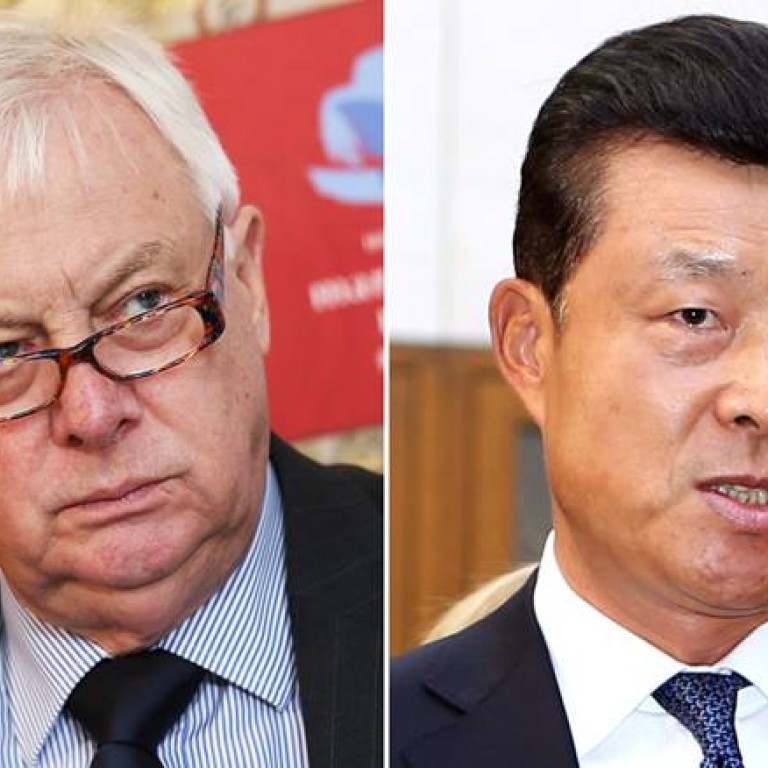
New | China's ambassador to UK accuses Chris Patten of 'rank hypocrisy' about Hong Kong democracy
Liu Xiaoming said the UK did 'nothing' to encourage democracy in Hong Kong during more than a century and a half of colonial rule
It is the “rankest hypocrisy” for people such as former Hong Kong governor Chris Patten to criticise China for failing to introduce democracy to Hong Kong, after the UK did nothing to encourage democracy in the territory during colonial rule.
That’s according to Beijing’s ambassador in London, Liu Xiaoming, who has also said that Patten’s recent call for London to stand up to Beijing “[revealed] that he never understood China, and that his views on Hong Kong are anachronistic and unhelpful”.
In a strongly-worded article published in The Daily Telegraph on Monday, Liu said that Patten had “sowed mistrust and division” in Hong Kong as governor, and “hindered” the city’s democratic development.
Earlier this month Patten wrote in the Financial Times that Britain had a “moral and political obligation” to Hong Kong as a co-signatory of the 1984 Sino-British Joint Declaration.
The document stipulated that Hong Kong should enjoy a high degree of autonomy under the “one country, two systems” principle after reunification with the mainland on July 1, 1997.
Patten also said that London should stand up to Beijing after the central government decided that while Hong Kong could pick its chief executive under “one man, one vote” in 2017, the candidates for the job would be chosen by a 1,200-member nominating committee, which would put forward only two or three who had to win the support of over half its members.
Countering Patten’s description that Beijing’s decision was a “denial of democracy”, Liu wrote that “given Lord Patten’s reputation, it is saddening to note that his judgment is so flawed, just as it was when he was in his Hong Kong role”.
In a reference to the electoral reform launched by Patten to allow more Hongkongers to vote for lawmakers, Liu wrote: “It was Lord Patten himself who impeded the course of Chinese-British cooperation over Hong Kong, and made the smooth handover of the colony more difficult.
"He sowed mistrust, division and estrangement in the society, and hindered the advancement of democracy. That is his legacy.”
Liu continued: “For more than a century and a half, Britain had total responsibility for the territory – and did nothing to encourage or produce democracy. It is therefore the rankest hypocrisy of people such as Lord Patten to criticise China for any perceived failings to introduce democracy.”
He also emphasised that the constitutional basis of democracy in Hong Kong must be the Basic Law, not the Sino-British Joint Declaration, because the former promised universal suffrage while the Joint Declaration “only provided for an election or consultation”.
“Today China and Britain are committed to building a comprehensive strategic partnership … Our cooperation in a wide range of areas has delivered real benefits to both our peoples,” Liu continued.
“Hong Kong should not be allowed to be an obstacle in Chinese-British relations; instead, China and the UK should work together to maintain the prosperity and stability of Hong Kong,” he concluded.
Britain’s parliament has launched an inquiry into the implementation of the Joint Declaration in Hong Kong.
The British government said it welcomed Beijing’s assurances that it would allow Hong Kong to elect its chief executive through universal suffrage, but failed to mention Britain’s treaty obligation outlined in the Joint Declaration.
It added that “the important thing is that the people of Hong Kong have a genuine choice and a real stake in the outcome”.

